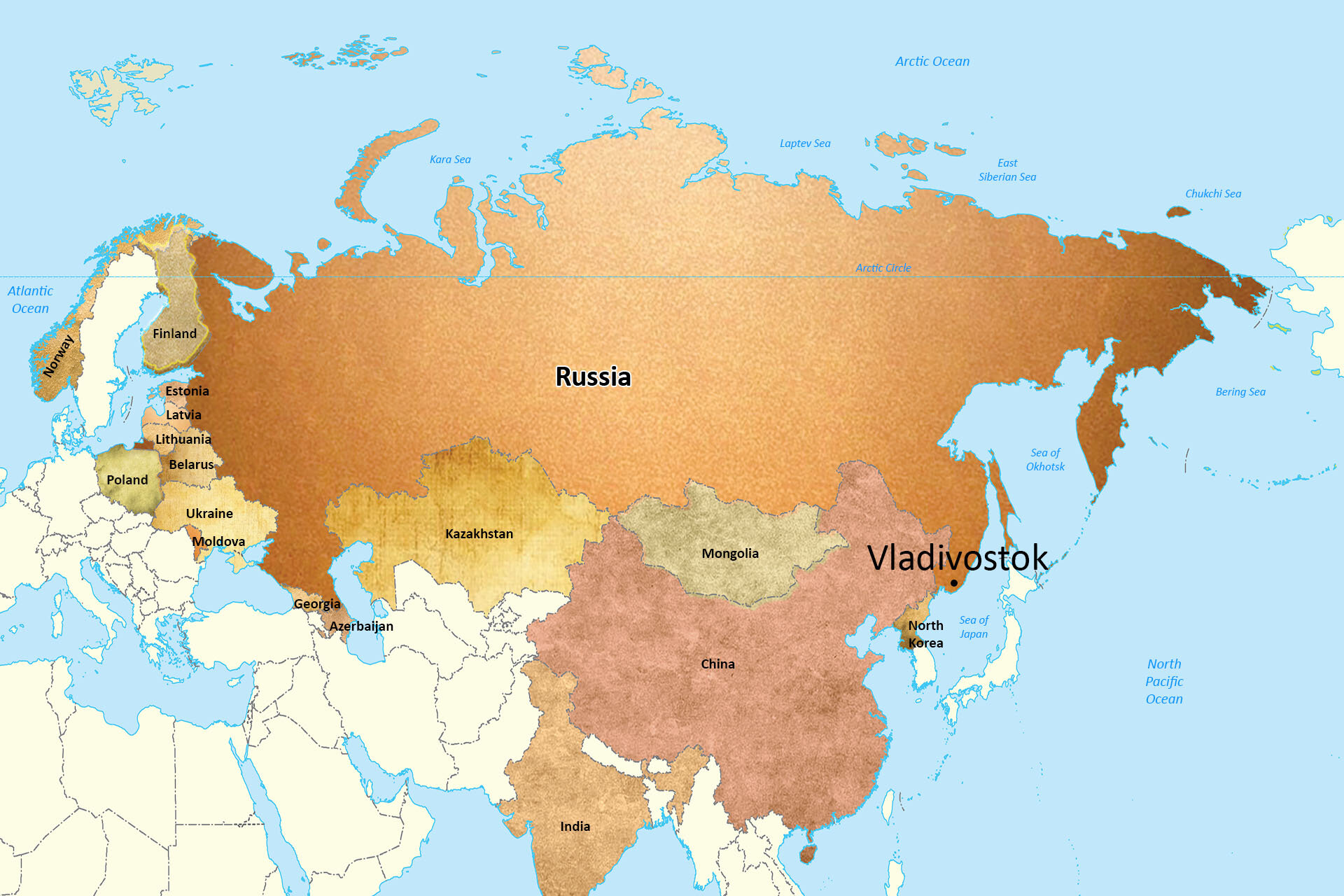International Relations
India - Russia
- 06 Sep 2019
- 7 min read
The Prime Minister of India was on a two-day visit to Russia to attend the 20th India-Russia annual summit and the 5th meeting of the Eastern Economic Forum (EEF) in Vladivostok.
- This is the first time that an Indian Prime Minister visited the Russian Far East Region (Vladivostok).
Key Takeaways
- Special and Privileged Strategic Partnership: Both the leaders agreed to facilitate, in all possible ways, exploring the impressive potential of their strategic partnership to the fullest, while demonstrating the special and privileged nature of the partnership.
- Supported India’s decision on J&K: Russia has backed India’s move on Jammu and Kashmir, saying that the changes in the status are within the framework of the Indian Constitution.
- Both the countries underlined the primacy of international law and emphasised their commitment to the purposes and the principles stated in the UN Charter including the inadmissibility of interference in the internal affairs of member states.
- Development of Russian Far East: India would extend a $1 billion line of credit towards the development of the Russian Far East.
- An area of special interest for India is the exploration of hydrocarbon reserves along the coast of Russia’s Far East.
- Also, engaging closely with East Asia is in line with India’s policy goal of “Act East”.
- Maritime Route: A proposal was made to have a full-fledged maritime route between Chennai and Vladivostok.
- Vladivostok is at a short distance from Russia’s border with China and is also the largest port on Russia’s Pacific coast.
- India is building nuclear power plants with Russia’s collaboration in Kudankulam on the sea coast in Tamil Nadu’s Tirunelveli district. The opening of a sea route is likely to help in the project.
- It will also increase India’s presence in the Indo-Pacific, and especially the South China Sea, a deeply contested patch of the ocean.
- Collaboration in Space: Russia, would help train Indian astronauts for the manned space mission — the Gaganyaan project.
- Both sides expressed concern over the possibility of an arms race in outer space and advocated peaceful uses of outer space.
- Economic Cooperation:
- The two leaders decided to take the bilateral trade from the current $11 billion to $30 billion by 2025.
- The work on promoting mutual settlements of payments in national currencies will be continued.
- Create new technological and investment partnership, especially in advanced high-tech areas and find new avenues and forms of cooperation.
- Agreed to speed up preparations for the signing of the India-Russia Intergovernmental Agreement on Promotion and Mutual Protection of Investments.
- Agreed to intensify work for eliminating trade barriers. This would be facilitated, inter alia, by the proposed Trading Agreement between the Eurasian Economic Union (EAEU) and India.
- Military Cooperation:
- The talks highlighted that the sanctions imposed by the US on Russia has no effect on India strengthening cooperation with the country in strategic sectors such as energy and defence.
- Both the countries are successfully implementing their bilateral programme on military and technical cooperation up to 2020 and working to update the same to extend to another 10 years.
- Cooperation in International Issues:
- Called for reform of the UN Security Council. Russia expressed its support for India’s candidacy for permanent membership of the UNSC.
- Condemned terrorism in all its forms and manifestations and called on the international community to set up a united front to fight against this evil.
- Reiterated their commitment to further strengthen global non-proliferation. Russia expressed its strong support for India’s membership in the Nuclear Suppliers Group (NSG).
- India is ready to play a significant role in the Arctic Council.
- Support an inclusive peace and Afghan-led and Afghan-owned reconciliation in Afghanistan.
- Reaffirmed their commitment to building an equal and indivisible security architecture in Asia and the Pacific region.
Exercise TSENTR 2019
- Exercise TSENTR 2019 is part of the annual series of large scale exercises that form part of the Russian Armed Forces' annual training cycle.
- The series rotates through the four main Russian operational strategic commands i.e Vostok (East), Zapad (West), TSENTR (Centre) and Kavkas (South).
- The 2019 exercise will be conducted by the Central Military Commission of Russia.
- The exercise is planned between 9th September to 23rd September 2019 at Donguz training ranges, Orenburg, Russia.
- Apart from host Russia, military contingents from China, India, Kazakhstan, Kyrgyzstan, Tajikistan, Pakistan and Uzbekistan will also take part in this mega event.
- These annual exercises have slowly begun taking an international character, with Belarus participating in ZAPAD-2017 and China and Mongolia participating in VOSTOK-2018.
- The exercise aims at evolving drills of the participating armies and practising them in the fight against the scourge of international terrorism thereby ensuring military security in the strategic Central Asian region.







